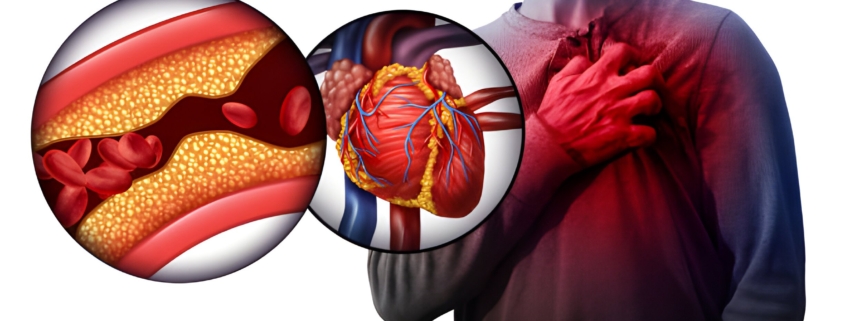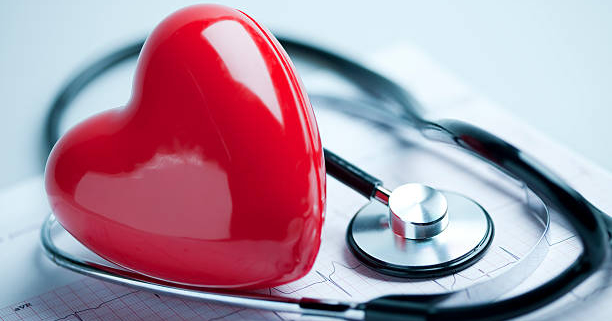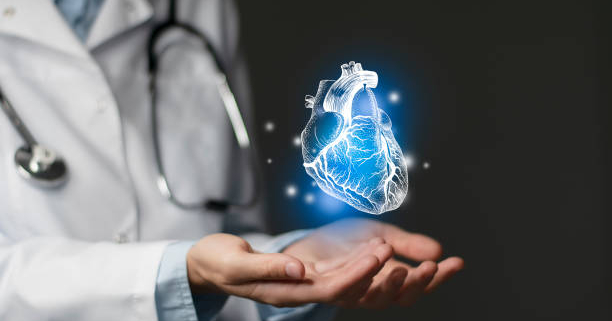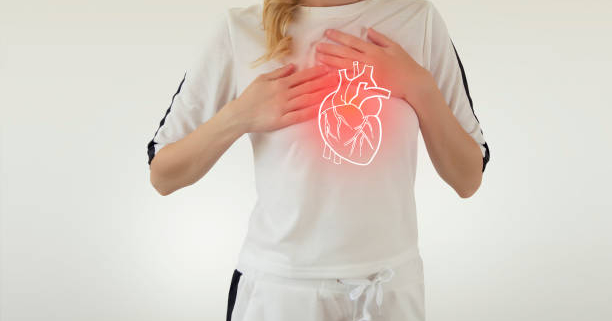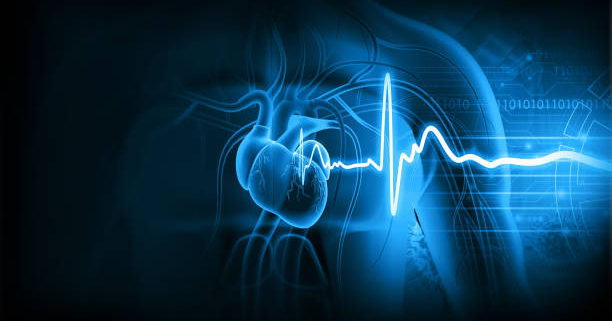Heart block, also known as atrioventricular (AV) block, is a problem with how the heart’s electrical system works. When someone has a heart block, their heartbeat becomes irregular and slow. Sometimes, it might even pause for around 20 seconds at a time. This happens because something is blocking or slowing down the electrical signals that control the heart’s rhythm. This blockage can occur because of damage or injury to the heart valves or muscles.
Because the heart itself is the one causing the blockage, it usually doesn’t require direct treatment. However, the underlying health issues that led to the heart block might need attention.
Heart block can cause symptoms like feeling your heart beating irregularly (palpitations), fainting, feeling dizzy, or even chest pain. Depending on how severe it is, heart block can be dangerous. For example, a complete heart block, also called third-degree heart block, can make existing health problems worse. It could even lead to passing out or sudden cardiac arrest.
What is a Heart Block?
Heart block messes with how the heart’s electrical signals work. Normally, your heart beats around 60 to 100 times per minute when you’re resting. Each beat pushes blood through your body. Your heart’s muscle contractions are controlled by electrical signals that move from the upper chambers (atria) to the lower chambers (ventricles).
Partial heart block happens when these electrical signals are slowed down or partly blocked. This can mess up the timing of your heartbeats and how well your heart pumps blood.
A complete heart block is when the electrical signals are completely messed up or stopped. This can slow your heartbeat down to around 40 times per minute. Even tiny changes in these signals, lasting just a fraction of a second, can cause heart block.
Sometimes, heart block makes it hard for your heart to pump blood around your body. This means less oxygen gets to your muscles and organs, including your brain, which can mess with how well they work.
Types of Heart Block
Heart block comes in three types:
First-degree heart block: This is a minor hiccup in the heartbeat that might make you feel like your heart skips a beat. It’s usually not a big deal and often doesn’t need treatment.
Second-degree heart block: In this type, some electrical signals struggle to get through to your heart. This can lead to skipped or dropped heartbeats. When the signal from the upper chambers (atria) can’t make it to the lower chambers (ventricles), the heart might not pump properly. It can make you feel dizzy, and sometimes you might need a pacemaker to help regulate your heartbeat.
Complete heart block or third-degree heart block: This happens when the electrical signals can’t travel properly between the upper and lower chambers of the heart. It’s pretty common among people with heart issues. It can be caused by surgery damaging the atrioventricular node (AV node), or it might happen on its own. To fix the heart’s rhythm, you’d need an artificial pacemaker. Without one, there’s a higher risk of a heart attack for people with complete heart block.
Heart Block Symptoms
When someone has complete heart block, they might experience:
- Chest pain
- Feeling like their heart is fluttering, pounding, or skipping (palpitations)
- Dizziness or feeling like they might faint (pre-syncope)
- Shortness of breath
- Extreme tiredness or fatigue
- Fainting (syncope)
- Slow heartbeat (bradycardia)
These symptoms can be serious and even life-threatening. If you or someone else has these symptoms, it’s important to call for an ambulance or contact your local emergency medical service right away.
Causes of Heart Block
Most people diagnosed with complete heart block already have an underlying heart condition, such as congenital heart disease, cardiomyopathy, or coronary heart disease. Age can also play a role, as the heart’s electrical pathways age too. Certain medications and imbalances in electrolytes can also contribute to complete heart block.
Diagnosing Heart Block
To diagnose heart block, a person would typically visit a heart specialist called a cardiologist for a complete heart evaluation. The cardiologist would review the person’s medical history, including any past heart tests they’ve had.
The doctor might ask questions about the person’s overall health, diet, activity level, and family medical history. They’ll also ask about any medications, including over-the-counter and prescription drugs, as well as alcohol, drug use, or smoking habits.
Next, the person will undergo a thorough physical exam. The doctor will check their pulse, measure their heart rate and rhythm, and look for signs of heart failure, like fluid retention in the feet or legs.
Heart block is diagnosed using an Electrocardiogram (ECG or EKG), which records the heart’s electrical activity. This test creates a graph showing the heart’s rhythm, rate, and timing of electrical signals as they move through the heart.
If the doctor needs to monitor the person’s heart over a longer period, they might recommend wearing a Holter Monitor. This is a small, portable ECG machine that continuously monitors the heart for 24 to 72 hours. It can help detect problems that may not show up on a standard ECG done at rest.
Treatment of Heart Block
Complete heart block can be very serious, so the specialist might suggest medication or implanting a pacemaker, depending on how severe it is.
Medications: The patient might get prescribed anti-arrhythmic medications. These drugs can change the heart’s electrical signals and help prevent disruptions in its electrical system.
Pacemaker: Implanting a pacemaker involves a small surgery. The device has two wires that attach to the right side of the heart. It acts like a backup electrical system, reminding the heart to beat at a normal rate if it slows down or stops.
Complete heart block is a big deal, so getting the right diagnosis and treatment is super important. Make sure to see a highly skilled and experienced heart specialist for proper care.

